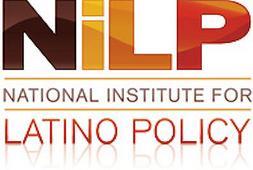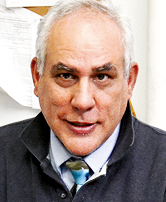
NiLP Guest Commentary
The Natas of Puerto Rican Coffee Price Controls
By Roger Hernandez, Jr.
The NiLP Report
 Coffee
aficionados will even debate the appropriateness of cream with coffee with the
natas vs. no
natas dilemma! How do you like your Puerto Rican coffee?
Coffee
aficionados will even debate the appropriateness of cream with coffee with the
natas vs. no
natas dilemma! How do you like your Puerto Rican coffee?
But more seriously, recent discourse on the plight of agriculture in Puerto Rico has spurred a flurry of coffee related topics. These range from industry trade stratagems and domestic production price fixing that affects import/export levels, to nnational federal wage rates for PR agricultural workers.
My initial August 12, 2017 NiLP Guest Commentary suggested that domestic Puerto Rican colonial government regulations with US trade agreements has created an inefficient disservice endangering the hard working farmers in the lowest income earning census tracts of the entire United States. This focuses on the area up in Las Indieras Alta de Boriken --- the growing region of Puerto Rican coffee. While some people have appreciated the avenues entered into this discussion, some others may have felt uneasy by the direction of this awkward business requiring a keen perception to view the intricate nature of Puerto Rico crop production and sale.
With ojo pelau', I have witnessed various viewpoints that combined together do not offer any rational explanation for the obvious exploitation of the Puerto Rican farmer and their excellent produce. How can Puerto Rico produce the world's best coffee and not make a buck? An astute gentleman farmer of mine (who wished to remain anonymous) has forwarded the following lamentation that deserves attention and reaction. It basically sums up the questions I have raised earlier with some thoughtful responses from Rebecca E. Atienza, Janis Barry, Etienne Cardona, S. Esther Ramos Cruz, and David Lewis. I invite readers to offer their views on what is to become of the Puerto Rican coffee grower?
Roger, you are stirring up the nest...what may come out of it ? bueno...
This keep to yourself: I should keep my mouth shut about PR government controlling price of coffee and keeping price artificially low, it seems, to make millions by being sole importer of coffee from Mexico et al. Why ? Because the lower the price of coffee here, the less we have to charge for our specialty brand to keep a little profit. It is simple economics. However, I would not be true to myself if did keep my mouth shut about that tragedy. I have loved farming since I was a kid, and I am still a kid. No, I will keep arguing for government getting out of coffee control. I cannot be selfish that way.
Since it will be a long time before local government here gives up destroying the coffee industry in PR, our brand is becoming the go-to for good coffee. We are adding to our farm's production, ripe coffee from a few small producers in Adjuntas. We do that because we decided we are too old to plant more fields at a great cost. Also, because only less than 4,000 coffee farms remain (out of 15,0000 coffee farms in 1994, per Dept. Ag. PR, we want to help their viability by paying more than $3/almud (bushel) ripe beans. That may be the highest pay per bushel for ripe coffee at the farm level in Puerto Rico.
We also will pay $8/bushel to pickers who will gather the ripe coffee on our farm. I say that not from arrogance, but to show what can be done. Fortunately, we have insisted all along to offer the very best quality beans, consistently. Please don't think that is a great accomplishment, it is not. However, we know that Arabica coffee from Adjuntas' exceptional micro-climate is "born" of a high quality. We went ahead and learned from many local and non-local experts to do the right thing with the great coffee grown on these lush, cool mountains.
A lot of other processors could do the same, and some do, but not nearly enough. Unintentionally, we have obtained a social media presence that effortlessly puts our brand of specialty Puerto Rican coffee out there for coffee lovers to notice. Coffee lovers who have come to the farm to taste great coffee go on to comment about it. We have learned that people's graciousness has no bounds.
We thank those coffee lovers and promise to continue to offer the very best beans. A result of that has been that many young coffee industry entrepreneurs have come here to see what we do, and we learn from them. Some of those young coffee providers offer our delicious coffee. Coffee shops/micro-roasters on the mainland and here are our heroes because they want to offer better coffee to their demanding customers.
Roger, we have had some advantages, including bilingualism, and, in part, being retired with Social Security/Pension as a fixed support. Many younger producers do not have those advantages and dare not venture out into the high end coffee market. The reason coffee farmers have been dropping out, mostly, is due to the price control at the farm level. It is simple math: production costs increase, price per bushel paid to them by processors stays low for 5 years or more at a time. The farmer cannot make a profit and decides to abandon coffee production. What to do about coffee problem in Puerto Rico?
Just imagine removing the per bushel control of coffee here... the farmer will sell to highest bidder, the price of coffee generally would go up fast, then, as production increases, the price begins to level off to market supply/demand. The boogeyman story here is that coffee from other producing countries would flood our local market and kill our coffee industry.
But wait a minute, it is already so, but it is our government monopoly doing it. As Lewis states, the US does allow Puerto Rico to protect the coffee industry. So, Puerto Rico can and should raise the port tax on imported coffee, especially prepared coffee. Could PR government remove the price control/get out of the coffee business in steps? I think that would be the way to go.
Now, put Hawaii's Kona coffee to compare a very similar situation as part of US. It seems Kona has always emphasized quality coffee. Its best sells for some $50/lb., and it seems they cannot produce enough for demand. Does imported coffee enter Hawaii? Of course it does, but it does not kill their local production because they offer quality beans. Now consider PR coffee industry: focus on volume, not quality.It cannot compete. It does not have good coffee market share. By the way, it is said that Kona pays Phillipino/Mexican workers over $25/bushel picked. Consider wanting to pay Puerto Rican workers $5/bushel picked. They do not pick our coffee at that price because they are not fools, not because they are lazy, as many regrettably complain.
A lot of rambling, and all I say may not be exactly correct, but we are blessed by the demand for our product. Who knows, we may keep on buying from more local coffee growers if demand for our coffee keeps on growing. Thanks for your interest in coffee and in Puerto Rico."
Signed
Anonymous PR Coffee Producer.
This is an important issue that should not go unnoticed. Puerto Rican coffee has world class merit that must be defended and preserved before its demise by a system of Colonial Malfeasance. Coffee growers; for their part, tend to be small-time entrepreneurs, men and women used to living by their wits and labor. They are not employees, they are not anonymous masses; they have a strong sense of self-identity, of making a living off a supposedly free market and with their own hard work.
Moreover, the near vertical nature of the mountainous landscape on which they live and work tends to reward hardy self-reliance and discipline; if you rise at four every morning and go off by yourself, climb a mountain in rain or fog or killing heat, and make a living off such an empire, then you don't need an empire to tell you what to do, what language to speak, what flag to salute, and what heroes to worship. Thus coffee culture is a natural breeding ground for rebels. Jibaros are proud.
So now, how do you like your coffee? Do you drink coffee straight up or with cream? With natas or without? This authentic part of Puerto Rican culture will soon be lost if the buen beneficiaries (Puerto Rican coffee lovers everywhere) allows the continued rape and ultimate demise of Puerto Rican coffee production by abusive colonial and national policies squeezing the economics out of the flavor of your favorite coffee. Demand a recourse on this illicit practice before it is too late.
Roger Hernandez Jr. is a 1987 MS Urban Affairs Graduate of Hunter College who is a lifelong, 3rd generation resident of El Barrio, and is coordinating El Barrio Unite opposition to area;s rezoning. He can be reached at rjhnyc@yahoo.com.
